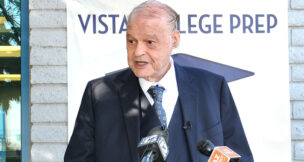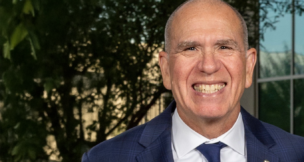Democrats’ groundwater proposal still awaits committee hearing
By Jamar Younger//February 6, 2025//
Democrats’ groundwater proposal still awaits committee hearing
By Jamar Younger//February 6, 2025//
Several lawmakers and stakeholders are willing to work with the Governor’s Office and Democrats who introduced new legislation to counter groundwater shortages in rural areas.
But the twin bills in the House and Senate need to receive a committee hearing first.
Sen. Priya Sundareshan, D-Tucson, and Rep. Chris Mathis, D-Tucson, joined Gov. Katie Hobbs and a bipartisan group that included rural mayors and county supervisors on Jan. 30 to introduce the Rural Groundwater Management Act of 2025. The legislation was created to give more local control to rural areas contending with groundwater shortages. The proposed law was introduced as mirror bills in each chamber, SB1425 and HB2714.
The bills would establish Rural Groundwater Management Areas (RGMAs) in the Gila Bend Basin, Hualapai Valley Basin, Ranegras Plain Basin, and San Simon Sub-basin, and establish certain requirements and restrictions for groundwater pumping in those areas. The Willcox Active Management Area, which was enacted to preserve the existing supply of groundwater in the Willcox Basin, would also be converted to a Rural Groundwater Management Area.
The legislation would also create a local Rural Groundwater Management Area council for each area with members appointed by the governor, Senate president, House speaker and the minority leaders in each chamber.
Officials at the press conference touted the bills as the first step in preventing the depletion of groundwater in rural areas while preserving local control.
“These are the starting point for rural groundwater negotiations moving into this session,” Sundareshan said. “This comprehensive plan was born out of the consensus of the diverse business and municipal interests represented on the governor’s water policy council, followed by months of stakeholder meetings, constituent engagement and honest conversations with the agricultural community.”
Lawmakers on both sides of the aisle, along with leaders of various advocacy groups, have expressed a common desire to address the groundwater shortages. Some want to emphasize local control and limit what they perceive as government overreach while others want to see more restrictions in order to protect depleted areas.
“Republicans will lead this issue as we did last year, and remain committed to working with anyone that shares the goal of protecting rural aquifers and economies,” said Sen. T.J. Shope, R-Coolidge, chairman of the Senate Natural Resources Committee, in a prepared statement. “We will, however, continue to pushback on any and all efforts to sacrifice true rural control for executive overreach consolidated in Phoenix.”
Shope said in a text message he hasn’t committed to hearing the Senate version of the measure, but the committee is still sorting through the list of bills that need to be heard.
It “doesn’t mean it doesn’t go forward but we’re just making it through the list at this point,” he said.
Rep. Gail Griffin, R-Hereford, who chairs the House Natural Resources, Energy and Water Committee, said she is still reviewing the bill and planned to provide further comment once the review was completed.
The leaders of groups such as the Arizona Farm Bureau and Sierra Club’s Grand Canyon chapter are both optimistic about the proposed legislation, while having different concerns regarding potential restrictions.
“When we talk about cuts, it talks about reducing how much food and fiber we produce, and that can be challenging,” said Arizona Farm Bureau President John Boelts. “So we’re trying to work through what the … written policy looks like from the Governor’s Office.”
Boelts is hopeful both parties can work together to address groundwater issues without hindering farmers and agriculture production.
“We’re hopeful that we can get a solution across the finish line that can be signed into law, but if that doesn’t happen, there are also opportunities to work on improving current public policy, if that’s all we could get done,” Boelts said. “But I do think both Republicans and Democrats are interested in finding solutions that work for Arizonans.”
Sandy Bahr, director of the Sierra Club’s Grand Canyon chapter, was also encouraged by the legislation, but wants to see it strengthened to further protect against groundwater pumping.
“We would like it to include more mandatory requirements, but the fact that it does include some initial rural groundwater management areas is important,” Bahr said.
She hopes the bills receive hearings so lawmakers and other stakeholders can discuss further improvements to protect the groundwater and meet the needs of residents in rural areas.
“This Legislature, by and large, has ignored (residents) and they now have an opportunity to do something with this bill,” she said. “From our perspective, we would love to see them make it stronger, but at a minimum, this is a good start.”














































